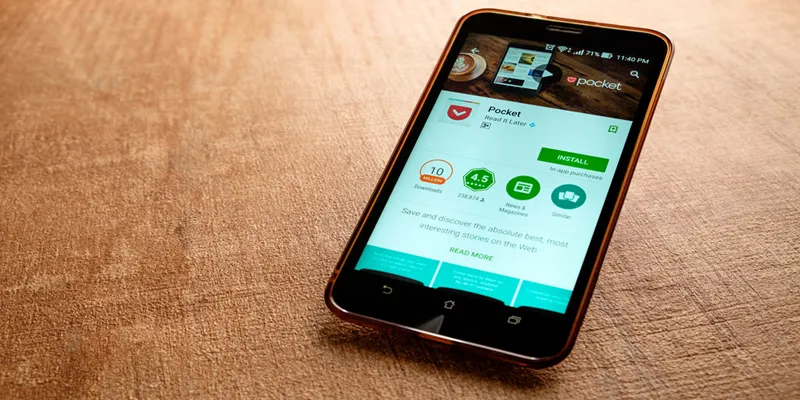Mozilla acquires read-it-later app Pocket and its 10 million strong user-base
For those Mozilla users who do most of their online reading mid-commute, the company has some exciting features lined up its sleeves for you. Marking a milestone moment, it has made its first acquisition with Pocket, a read-it-later service, for an undisclosed amount.
The company, which is in its ninth year of operations, makes tools for saving articles and videos to be viewed at a later time. Incidentally, the company first started out as an extension of Firefox and has been its default read-it-later service since 2015. After informally working together for a year, both Mozilla and Pocket have decided that an official collaboration of resources and ideas is a necessity to improve user experience.

Image : shutterstock
Both companies seem to be weighing their options on the benefits they will receive from this acquisition. For Mozilla, which though popular in its own right, has not had much success through its mobile-based services. Acquiring Pocket will bring with it the latter’s 10 million monthly active user-base and more than three billion pieces of content saved to date. Along with this, Pocket also offers a recommendation-based feature, featuring content shared by friends and other people you follow. It identifies high-quality articles based on how often they are viewed, saved, read, and shared.
To Denelle Dixon, Mozilla’s chief business and legal officer, the aim isn’t limited to the amount of revenue they can glean from their product. “We love the way that they have the user-first mentality, very similar to the way we drive our products,” she said.
As for Pocket, a ten million strong user-base though admirable as a stand-off measure, is not as considered as commendable when compared to other players in the market. Its rival competitor, Instapaper, showed greater numbers in terms of both users and content pieces after being acquired by Pinterest last year.
Pocket was approached by cross-platform company Evernote for collaboration six years ago. Although this would have possibly been a smart acquisition in terms of financial records, Pocket chose to opt out of this deal considering that they would be integrated as another feature inside Evernote’s app, instead of being given a stand-alone status. However, with Mozilla, Pocket is reportedly being granted the independent access it desires while benefitting from the global reach that the former enjoys today.
“We’ve always had this same litmus test we used against Evernote. Will this allow us to accomplish our mission bigger, better, and faster? Nobody’s ever checked that box before. But with Mozilla, it became very clear from the extraordinary resources they have, the scale they have globally, the mission we share together, it was a fit,” said Nate Weiner, CEO of Pocket, as reported by The Verge.
This is also due to the fact that despite the formal ties of an acquisition, Mozilla will allow Pocket to have its own name on the door and maintain its team of 25 to operate from its San-Francisco-based headquarters.
Pocket had managed to raise $14.5 million from a series of funding, including a $7 million round in 2015 from investors such as New Enterprise Associates, Ashton Kutcher’s fund, and Axel Springer. As a result of now working under the Mozilla banner, the company will become a wholly-owned subsidiary of Mozilla Corporation and will also become an important part of the Mozilla open-source project.







